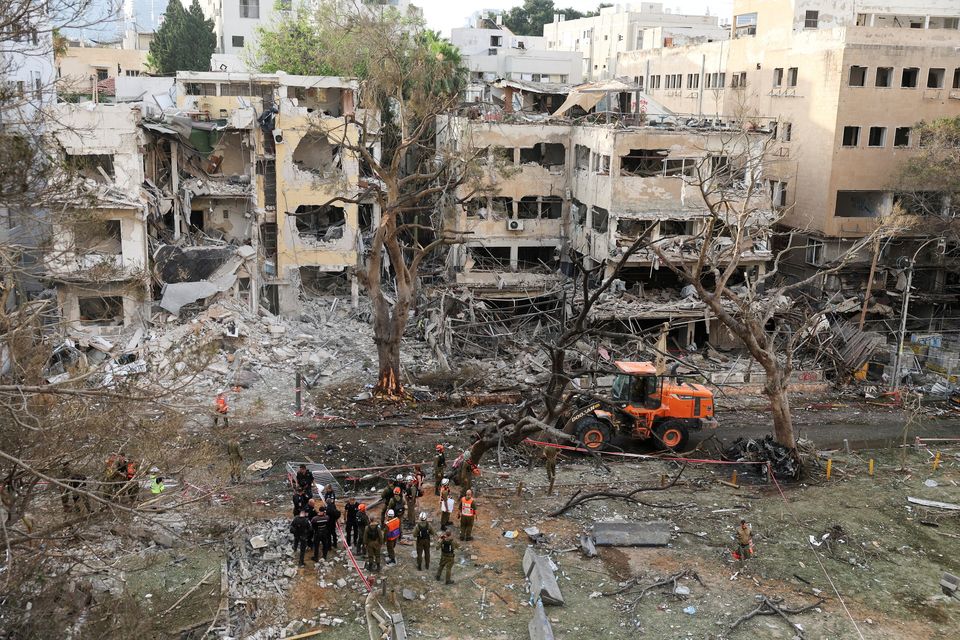In a rapidly escalating regional conflict, Israeli airstrikes have reportedly caused significant damage to an underground Iranian nuclear site, according to sources cited by international nuclear monitoring agencies. The strike, which targeted a sensitive facility believed to be involved in uranium enrichment, marks a dangerous new chapter in the shadow conflict between Israel and Iran, while also drawing global attention due to comments from former U.S. President Donald Trump, who issued a stark and ominous warning about the future of Middle Eastern stability.
The site, located near Natanz, one of Iran’s most heavily fortified and strategically important nuclear complexes, was reportedly struck using advanced bunker-busting munitions. While official Iranian state media has downplayed the severity of the incident, international inspectors and independent analysts suggest that the damage may set back Iran’s nuclear program by several months, if not longer.
High Stakes at Natanz
The underground Natanz site has long been at the center of global non-proliferation concerns. Buried deep within mountains to protect it from potential attacks, it has been subject to repeated scrutiny from the International Atomic Energy Agency (IAEA). Recent satellite imagery appears to corroborate claims of structural damage, though Iranian authorities maintain that their nuclear program remains intact and strictly for peaceful purposes.
Israel has neither confirmed nor denied involvement, in line with its longstanding policy of strategic ambiguity. However, Israeli officials have repeatedly vowed to take “all necessary actions” to prevent Iran from obtaining nuclear weapons — a red line that Tel Aviv insists cannot be crossed.
Trump’s Warning Raises International Alarm
Amid the fallout, former U.S. President Donald Trump weighed in during a media appearance, issuing a grave warning about the potential for a broader regional war. Without directly referencing the Israeli strikes, Trump stated, “We are closer than ever to something very, very big happening in the Middle East — and it won’t be good.”
His comments have sparked intense speculation among analysts, with many interpreting them as a signal that the United States — or at least key political factions — may support further Israeli military action, or foresee inevitable conflict if diplomatic efforts continue to stall.
Global Response and Growing Tensions
The reported strike comes at a delicate time, as global powers — including the European Union, China, and Russia — attempt to revive the Iran nuclear deal (JCPOA). With diplomacy hanging in the balance, this latest escalation may undermine efforts to bring Iran back into compliance with international nuclear agreements.
Meanwhile, Iran’s Revolutionary Guard has vowed retaliation, and reports indicate heightened military alert across Israeli and U.S. assets in the region. The United Nations has called for restraint, warning that any further military escalation could lead to a wider regional conflict.
What Happens Next?
This incident underscores the fragility of current diplomatic efforts and the high stakes involved in the standoff over Iran’s nuclear ambitions. While Israel continues to pursue a hardline approach, regional and global actors must now reckon with the reality that one miscalculation could ignite a full-scale confrontation.
As the situation develops, world leaders and international bodies are urging calm, but with rhetoric and military posturing escalating, the path to peace may be narrowing quickly.
Swifteradio.com


